Sacred Roots: Exploring the Spiritual Traditions of Africa
Africa, a vast and diverse continent, is home to an intricate tapestry of spiritual traditions and religious beliefs. These traditions, deeply rooted in the continent’s history, culture, and environment, offer profound insights into humanity’s quest for meaning and connection. This exploration delves into the sacred roots of African spirituality, highlighting the key beliefs, practices, and the role of nature and community in shaping these traditions.
The Diversity of African Spirituality
Africa is not a monolith; it is a mosaic of cultures and languages. As such, its spiritual traditions are incredibly diverse. Broadly, African spirituality can be categorized into several major belief systems, including:
- Traditional African Religions
- Abrahamic Religions (Christianity and Islam)
- Indigenous Spiritual Practices
Traditional African Religions
Traditional African religions are often polytheistic and centered around the worship of a Supreme Being, ancestors, and a pantheon of deities. These religions vary greatly from one region to another but share common elements such as:
- Ancestral Worship: Ancestors play a vital role in the spiritual lives of many African communities. They are revered and honored through rituals, and their guidance is sought in daily affairs.
- Spiritual Forces: Many cultures believe in spiritual forces or spirits associated with natural elements, such as rivers, mountains, and trees. These spirits are often seen as guardians of the land and its people.
- Rituals and Ceremonies: Rituals are a crucial aspect of traditional spirituality, marking significant life events such as birth, marriage, and death. These ceremonies often involve music, dance, and offerings to the spirits.
Abrahamic Religions
Christianity and Islam have a significant presence in Africa, introduced through colonization and trade. Both religions have adapted to local cultures, leading to unique expressions of faith.
- Christianity: African Christianity often blends traditional beliefs with biblical teachings. Many congregations incorporate local languages, music, and customs into their worship, creating a vibrant and dynamic faith experience.
- Islam: Islam is predominant in North and parts of West Africa. African Muslims often observe Islamic practices while incorporating elements of local spirituality, leading to diverse interpretations of the faith.
Indigenous Spiritual Practices
Alongside traditional religions and the Abrahamic faiths, indigenous spiritual practices persist. These practices often emphasize the interconnectedness of all life and the importance of living in harmony with nature.
- Ritualistic Practices: Indigenous groups often engage in rituals that celebrate the cycles of nature, such as planting and harvest festivals.
- Healing and Medicine: Many indigenous practitioners are skilled in herbal medicine, believing that spiritual well-being is intertwined with physical health.
Core Beliefs of African Spirituality
While the specifics of African spiritual traditions vary widely, several core beliefs are prevalent across many cultures:
The Interconnectedness of Life
African spirituality often emphasizes the interconnectedness of all beings—humans, animals, plants, and the spiritual world. This belief fosters a deep respect for nature and encourages sustainable living practices.
The Role of Ancestors
Ancestors are seen as intermediaries between the living and the divine. They are believed to watch over their descendants, offering guidance, protection, and blessings. Honoring ancestors through rituals and offerings is a common practice in many cultures.
The Spiritual Realm
Many African traditions recognize a rich spiritual realm inhabited by various deities, spirits, and supernatural beings. These entities are often associated with natural elements and are believed to influence daily life.
Moral and Ethical Conduct
Spirituality in Africa is closely linked to moral and ethical behavior. Many traditions emphasize communal values, such as respect, generosity, and communal responsibility. Living in accordance with these values is seen as essential for spiritual harmony.
Rituals and Practices
Rituals play a crucial role in African spirituality, serving as a means of connecting with the divine and the community. Some common practices include:
Offerings and Sacrifices
Offerings to ancestors and spirits are a way to show gratitude and seek favor. These offerings can include food, drinks, and symbolic items. Sacrifices may also be made, typically involving animals, in significant rituals.
Divination
Divination practices, such as casting bones or reading the patterns of natural elements, are used to gain insight into personal and communal issues. Diviners are respected figures in the community, believed to possess the ability to communicate with the spiritual realm.
Music and Dance
Music and dance are integral to spiritual rituals. They serve as forms of expression, celebration, and connection to the divine. Traditional instruments, such as drums, flutes, and string instruments, are commonly used to enhance the spiritual atmosphere.
Healing Ceremonies
Healing is often viewed as a holistic process encompassing physical, emotional, and spiritual well-being. Traditional healers, or shamans, use a combination of herbal remedies, rituals, and spiritual guidance to restore balance and health.
The Role of Nature in African Spirituality
Nature holds a sacred place in African spirituality. Many traditions view the natural world as a living entity filled with spiritual significance.
Sacred Sites
Certain locations, such as mountains, rivers, and trees, are considered sacred and are often associated with specific deities or spirits. These sites are frequented for rituals, prayers, and offerings.
Environmental Stewardship
The belief in the interconnectedness of life fosters a sense of responsibility towards the environment. Many communities engage in practices that promote sustainability and conservation, reflecting their spiritual beliefs.
Symbolism of Animals and Plants
Animals and plants often hold symbolic meanings within African spiritual traditions. For example, the lion may represent strength and courage, while the baobab tree symbolizes longevity and resilience.
Challenges and Resilience
Despite the rich tapestry of African spirituality, these traditions face numerous challenges:
Globalization
The spread of globalization has led to the dilution of traditional practices as younger generations are influenced by Western cultures and religions. However, many communities are actively working to preserve and revitalize their spiritual heritage.
Religious Conflict
In some regions, tensions between traditional beliefs and Abrahamic religions have led to conflict. Nevertheless, many people navigate these complexities by blending beliefs and practices.
Environmental Changes
Climate change and environmental degradation threaten the landscapes that hold spiritual significance for many communities. This loss not only affects their connection to the land but also their spiritual practices.
Revitalizing Sacred Traditions
In recent years, there has been a resurgence of interest in traditional African spirituality. Efforts to revitalize these sacred traditions include:
Cultural Education
Many communities are investing in cultural education, teaching younger generations about their spiritual heritage and the importance of preserving traditional practices.
Interfaith Dialogue
Encouraging dialogue between different faith communities can promote understanding and respect for diverse spiritual traditions. Interfaith initiatives often focus on shared values and community building.
Sustainable Practices
As awareness of environmental issues grows, many African spiritual communities are advocating for sustainable practices that honor the land and its resources. This approach aligns with their spiritual beliefs and strengthens their connection to nature.
Conclusion
The spiritual traditions of Africa are a testament to the continent’s rich cultural heritage and profound wisdom. Rooted in a deep respect for nature, community, and ancestral ties, these traditions offer valuable insights into the human experience. As the world continues to change, the resilience and adaptability of African spirituality remind us of the importance of honoring our sacred roots. By embracing and revitalizing these traditions, we can foster a more harmonious relationship with ourselves, each other, and the world around us.
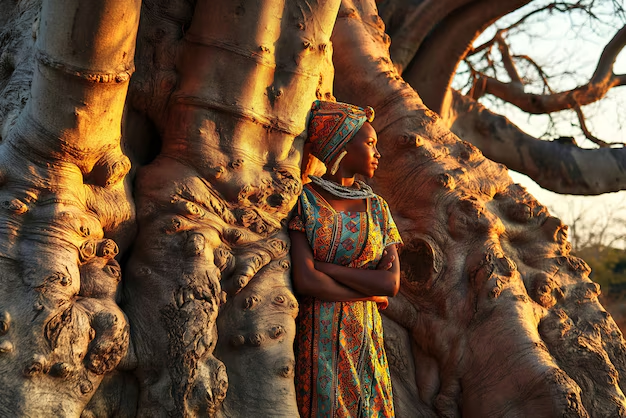
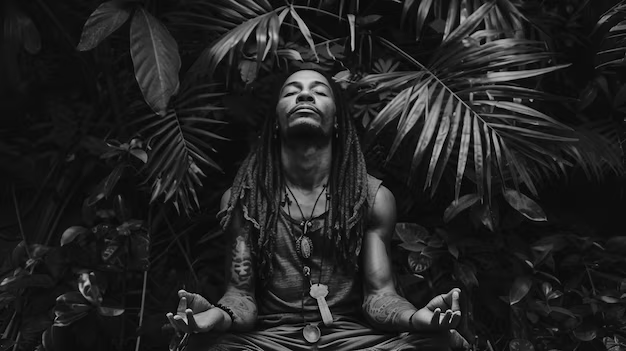
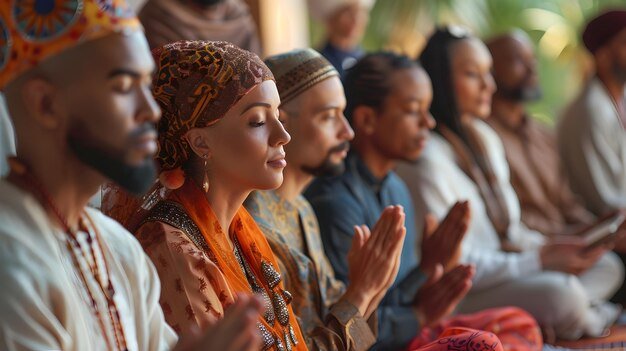
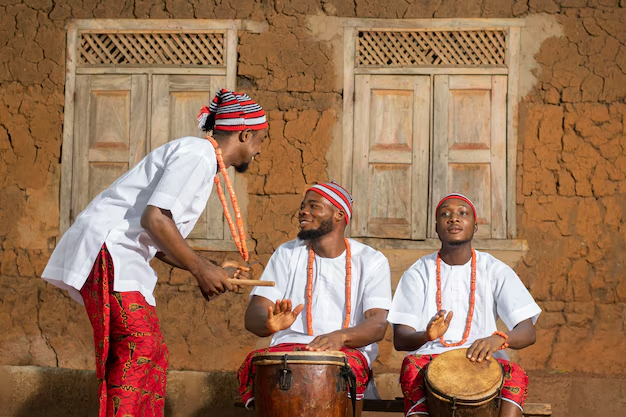





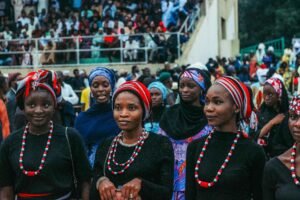




Publicar comentário